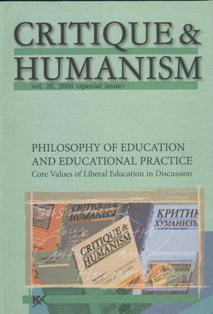Coercion and the ethics of grading and testing
Coercion and the ethics of grading and testing
Author(s): Randall CurrenSubject(s): Cultural Essay, Political Essay, Societal Essay
Published by: Фондация за хуманитарни и социални изследвания - София
Keywords: coercion; ethics; grading; testing; education; reform; legitimacy; moral framework; libertarian
Summary/Abstract: Two distinct but related issues in the ethics of grading and testing will concern me in this paper. The fi rst of these is the charge, associated in the past two decades with libertarian educational theory, that the common practice of grading students' work is intrinsically coercive.1 The second is the larger national debate about ‘authentic’ assessment, educational standards, and standardised measures of educational outcomes. With respect to the latter issue, my particular concern is the moral grounds that can be adduced in support of new measures of educational achievement or progress. There are important connections between these issues, and one I shall pursue here is that in developing an account of the ethics of grading rich enough to generate a satisfactory response to the charge of coercion, one also uncovers moral grounds for preferring some of the newer forms of standardised measures over the kind of multiple-choice examinations that have prevailed in recent decades. In essence, I will argue that there are morally preferable forms of measures, adaptable to both classroom and standardised uses, which constitute an acceptable middle way between a condemnation of all grading and testing and an acceptance of the status quo that has prevailed.
Journal: Критика и хуманизъм
- Issue Year: 2008
- Issue No: 26
- Page Range: 59-76
- Page Count: 18
- Language: English
- Content File-PDF

